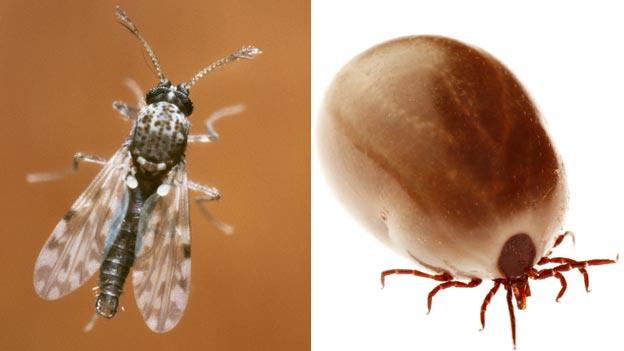Highland Council gives advice on protection against ticks
- Published
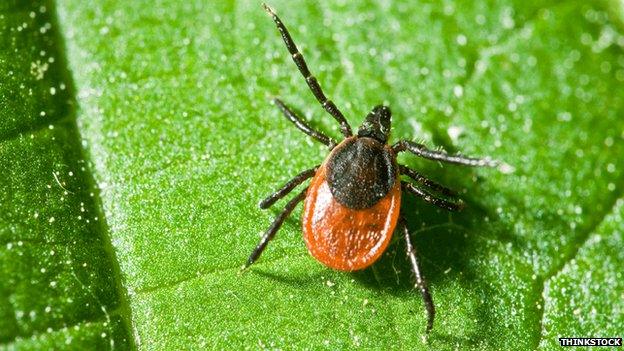
Ticks are small arthropods related to spiders, mites and scorpions
Highland Council has urged people to take "simple precautions" against being bitten by ticks.
The blood-sucking creatures have been linked to a rise in Lyme disease in humans in the past 10 years.
Untreated tick bites can result in neurological problems and joint pain months or years later.
The local authority has set up a page on its website giving advice, external on how to avoid tick bites and what to do if bitten.
Ticks are small arthropods related to spiders, mites and scorpions and Britain has a number of different species.
People are most likely to come across sheep ticks, which feed on mammals and birds, in open spaces with long grass or bracken.
'Tick tool'
Highland Council's tick project co-ordinator Bob Murdoch said he knew of people who had fallen ill because of Lyme disease.
He said: "I feel it vital that we raise awareness of the issues surrounding ticks.
"Increasingly, more people are aware of someone among friends or family who has been bitten or affected by ticks.
"This is a widespread issue across the country and we should all take simple precautions like avoiding walking though long grass with bare legs or arms in the tick season of May to September.
Mr Murdoch added: "Tuck trousers into socks and inspect yourself when you get home. If you haven't already got a tick tool, this is a great idea and something we should all have handy in the car, wallet or handbag."
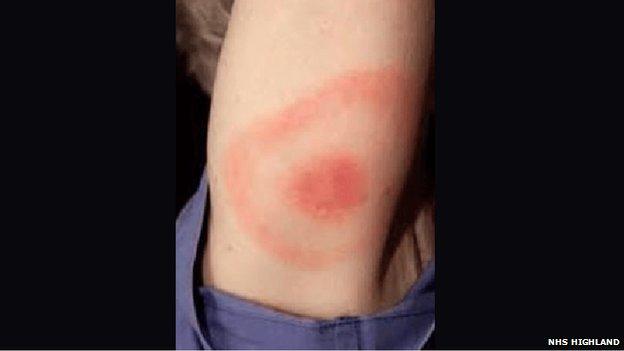
A tick bite on an arm
The council's campaign is the latest effort in the Highlands to tackle the threat posed by ticks.
In May, the European Space Agency gave £180,000 to a project to test a new app mapping tick hotspots.
NHS Highland, the University of the Highlands and Islands and Scotland's Rural College are involved in the initiative which will test the LymeMap app.
People out walking or cycling have been asked to use the app to upload information about where they find ticks.
Using GPS technology, the application also gathers details such as the height, temperature and vegetation cover of the location where a person uploads their information.
Lyme disease is a bacterial infection that is spread to humans by infected ticks.
Flu-like symptoms and fatigue are often the first noticeable signs of infection.
Diagnosed cases of Lyme disease can be treated with antibiotics, but, if left untreated, neurological problems and joint pain can develop months or years later.
- Published13 May 2015
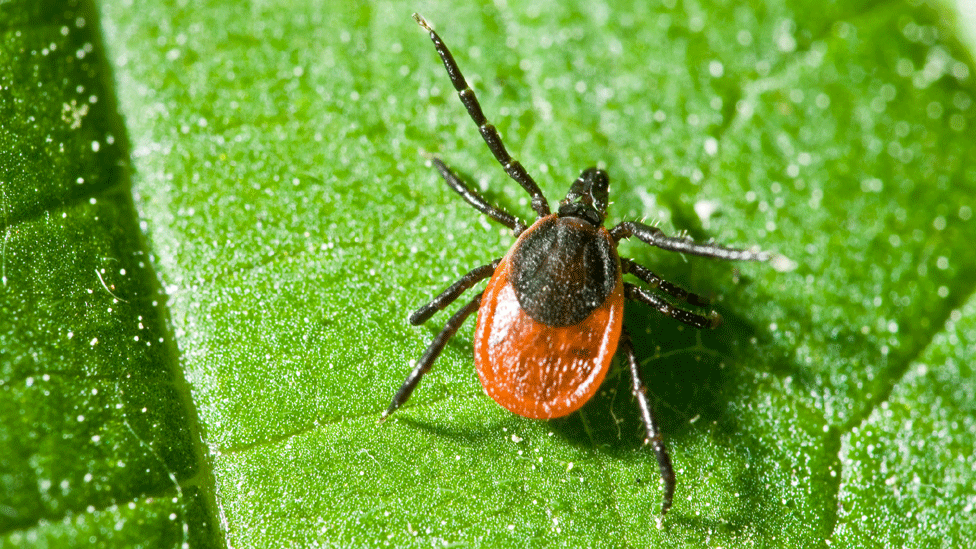
- Published23 April 2015
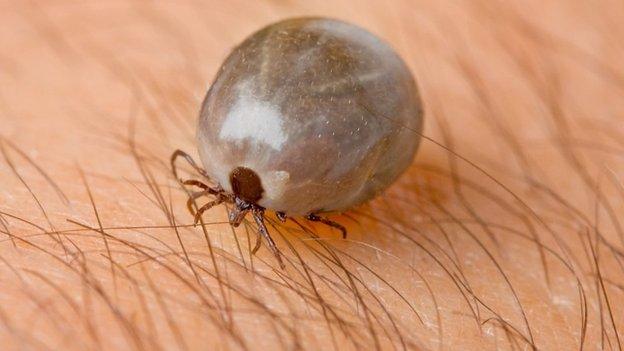
- Published9 July 2013
